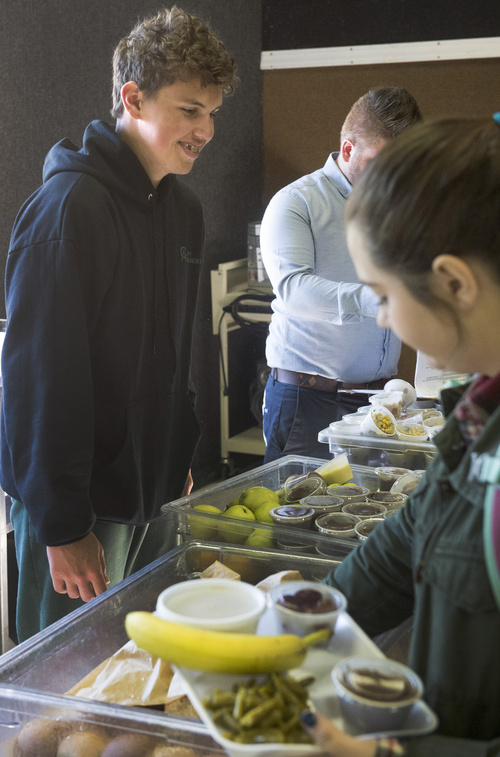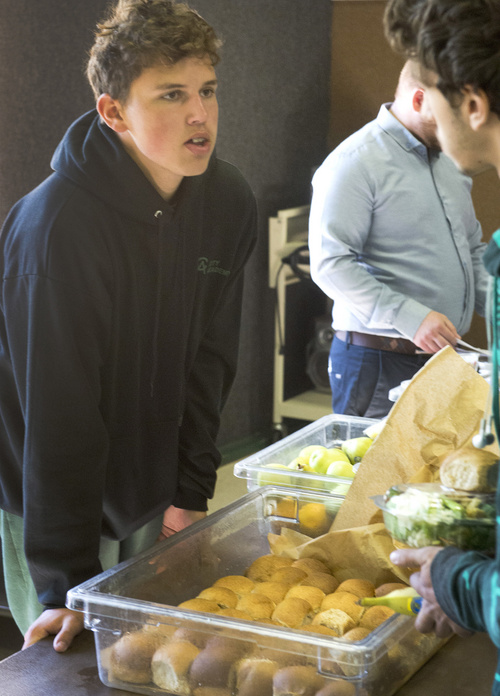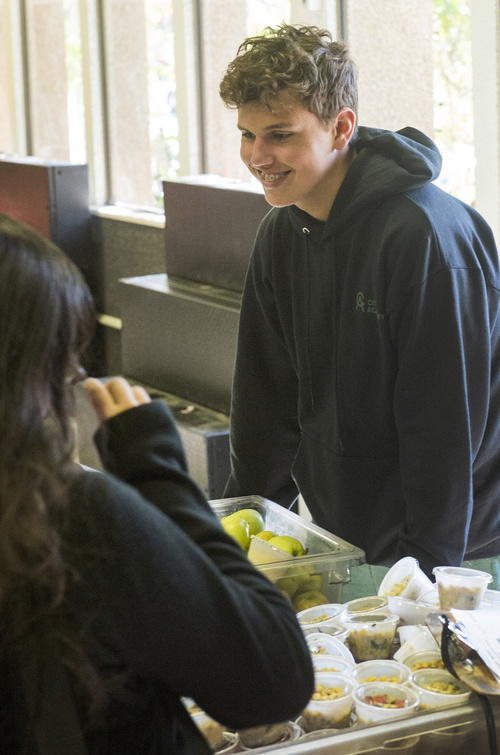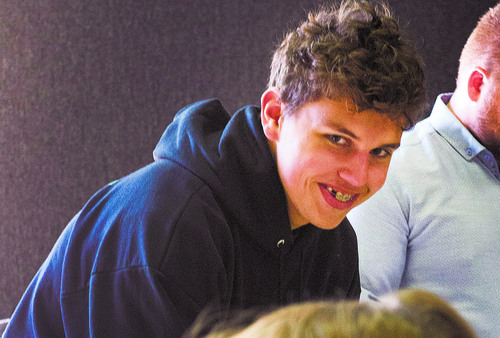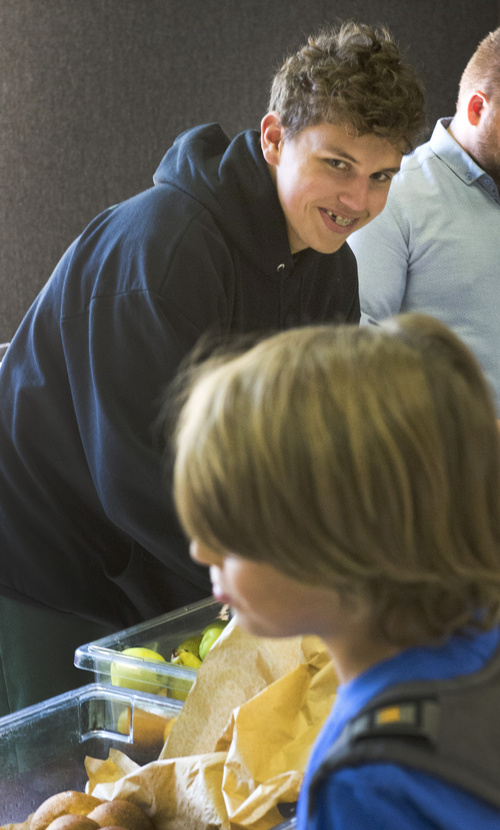This is an archived article that was published on sltrib.com in 2014, and information in the article may be outdated. It is provided only for personal research purposes and may not be reprinted.
Patrick Utzinger doesn't want other students to face the kind of bullying he did as a kid.
So the autistic high school senior is interviewing this week for a job to mentor grade-school students. He put together a resume and refined his pitch in a job training program at City Academy, a charter school in Salt Lake City.
Getting a job, he said Thursday, "is just harder for kids with autism." But, he added, "It's good experience to have that employment when you go off to college."
Utzinger is one of many Utah students with a range of disabilities who are getting how-to-get-a-job training and on-the-job training. But more such school-run programs are needed, according to a report, from the Disability Law Center.
One in five young, disabled Utahns are missing out on college or decent-paying jobs the year after high school graduation, center researchers found. A Utah State Office of Education survey of students with Individual Education Programs, or IEPs, who left school in 2011 found that 19 percent of those students were not working or going to school a year later.
Disabled students surveyed said not having the required job skills kept them from getting some positions, followed by their own lack of desire or little cooperation from parents. They also cited too few employers willing to hire people with disabilities and said appointments with the state-run job training agency were hard to come by.
The report, compiled in 2012, also acknowleges that often, in rural areas, jobs are simply harder to come by, or are tougher to get to because public transit is limited.
The findings highlight a need for "really looking at the individual students," said center attorney LauraLee Gillespie. "What are the services they need in school? Rather than: This is the way we've always done it."
Despite the obstacles, 40 percent of such recent Utah graduates managed to snag minimum-wage jobs, though their counterparts with more severe forms of intellectual disability, including mental illness and autism, or physical handicaps weren't likely to get work.
About a quarter of those surveyed were in college. The remainder had some kind of job or were working toward a post-high school diploma.
The Disability Law Center released the new nationwide analysis as federal lawmakers have passed legislation to mandate that state agencies seek out minimum-wage or higher-paying jobs for disabled people before designating them to lower-paying positions. The same legislation also requires high school administrators to prove they're helping students prepare for and find jobs.
In the statewide report, Alpine School District won praise from the center for drawing up a job-finding program intent on catering to student interests. The district recently won a federal grant to create the program, and it's still in the works.
But such a focus on what students want in a job isn't the norm at most schools, the researchers found. Some force students to rely on day treatment programs or family members.
Nebo School District has joined Alpine in bucking the trend. It assigns a job counselor charged with helping create a position if none in the community match the graduating student's interests.
Jordan and Davis School Districts also earned kudos for developing college and career plans for special education students that track their goals and progress. Still others are designing after-school and summer camp programs to bring students to employers and colleges.
But school leaders concede parents can get in the way of those efforts, often because they're afraid something bad could happen if their kid starts working.
Some schools try to allay parent concerns by inviting them to meet with current working students and ask questions.
But across the board, school officials and employees said a larger problem persists: Disabled students aren't expected to join the workforce and acquire competitive jobs.
Uintah River High School, in Fort Duchesne, is working to change that perception. Students in special education courses there can choose to work at local grocery stores, a bowling alley or government offices, said special education teacher Kathleen Chegup. They also can shadow doctors or other professionals.
"Rather than have our kids graduate and not do anything," Chegup said, "we encourage them to get an idea of what it's like to work" before they leave high school.
Patrick Utzinger, the 18-year-old gearing up for his interview, said he now volunteers as a tutor for younger autistic students. Utzinger, who plans to earn a teaching degree, coaches the youngsters on what to do when peers make fun or call names.
"I just tell them what I went through" in 5th grade, he said, when his class was too big for the teacher to look out for him.
"If you're getting bullied or just anything like that, I tell them to walk away."
aknox@sltrib.com Disabled students
For the "Utah Transition Today" study, Disability Law Center researchers visited 10 districts along the Wasatch Front, six of their rural counterparts and three schools.
The researchers also surveyed students who qualify for special education services across the state's 41 districts and 96 charter schools. About 35 percent of students responded.
Twelve percent of Utah public school students qualify for special education services.
Utah Parent Center has more information for parents at utahparentcenter.org.


